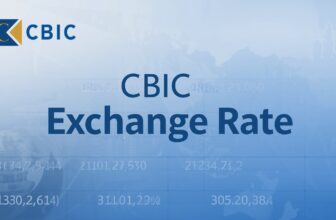
Enter the dynamic world of spread betting in forex—an innovative way to speculate on currency movements. This financial tool allows traders to capitalize on market fluctuations, predicting price spreads for profit. Explore the flexibility and risks that define this exciting approach to foreign exchange trading.
Spread betting forex is a trading technique that allows individuals to speculate on the movements of currency pairs without actually buying or selling the currencies in the foreign exchange market.
Key Takeaways:
- Spread betting forex allows individuals to speculate on the movements of currency pairs without buying or selling actual currencies.
- Three key components of a forex spread bet are the direction of the trade, the size of the bet, and the spread of the instrument.
- Spread betting forex enables traders to leverage their trades, which can amplify both profits and losses.
- Traders need to have capital in their account in the currency in which the underlying profit or loss is credited or debited.
- Careful risk management is essential when engaging in spread betting forex.
What is Spread Betting Forex
Spread betting in forex trading has become a popular method for speculating on the movements of currency pairs without the need to physically buy or sell the currencies on the foreign exchange market. This approach has gained significant traction, especially with the increasing accessibility provided by online forex trading platforms.
It is a popular method of trading in the financial markets, particularly for those interested in forex trading. With the advancement of technology, spread betting forex has become easily accessible through online forex trading platforms.
When engaging in spread betting forex, traders place bets on the direction of the price movement of a selected currency pair. This means that they are essentially betting on whether the price will go up or down. The three key components of a forex spread bet are the direction of the trade, the size of the bet, and the spread of the instrument.
One of the advantages of spread betting forex is the ability to leverage trades. This means that traders can control a larger position with a smaller initial investment. However, it is important to note that leverage can amplify both profits and losses. It is crucial for traders to have a well-defined forex trading strategy and to carefully manage their risk.
It is important to understand that spread betting forex does not involve owning any currency. However, traders need to have capital in their account in the currency in which the underlying profit or loss is credited or debited. This ensures that they have sufficient funds to cover any potential losses.
Let’s break down the core components of spread betting forex:
1. The Spread: The term “spread” refers to the difference between the buying (ask) and selling (bid) prices of a currency pair. For example, if the GBP/USD pair has a bid price of 1.3000 and an ask price of 1.3005, the spread is 5 pips. Traders bet on whether the actual price will be higher (ask) or lower (bid) than the quoted spread.
2. Direction of the Trade: Traders must predict the direction in which the currency pair’s price will move. For instance, if a trader believes the EUR/GBP pair will increase in value, they would place a spread bet on the upward movement.
3. Size of the Bet: This involves determining the amount of money per point (pip) a trader is willing to wager. For instance, if a trader bets £2 per pip on the EUR/USD pair and the price moves 10 pips in their favor, they would gain £20.
4. Leverage: One of the distinctive features of spread betting is the ability to use leverage. Leverage allows traders to control larger positions with a smaller initial investment. For instance, with a leverage of 20:1, a trader can control a position worth £20,000 with a £1,000 investment.
An illustrative example would be if a trader believes the USD/JPY pair will decrease in value and decides to place a spread bet of £5 per pip on a leverage of 10:1. If the currency pair moves 15 pips in the anticipated direction, the trader’s profit would be £75 (15 pips * £5).
Spread betting forex offers flexibility and the potential for profit in both rising and falling markets. It is important for traders to understand the risks associated with leverage, as while it can amplify profits, it also magnifies potential losses. Careful risk management and a comprehensive understanding of market dynamics are crucial for success in spread betting forex.
The Mechanics of Spread Betting
To comprehend the mechanics of forex spread betting, it’s essential to delve into the intricacies that make this trading technique unique. Spread betting is not just a prediction game; it involves a set of processes and components that dictate how trades are executed and profits or losses are determined.
1. Two Crucial Prices: The Bid and Ask
At the heart of forex spread betting are two fundamental prices – the bid and ask. The bid price represents the amount a trader can sell a currency pair, while the ask price is the cost to buy the same pair. The difference between these two prices is known as the spread. For example, if the EUR/USD pair has a bid price of 1.3000 and an ask price of 1.3005, the spread is 5 pips.
2. Placing a Spread Bet
When a trader decides to engage in spread betting, they are essentially placing a bet on whether the actual price of the currency pair will be above or below the quoted spread. Let’s say a trader believes the GBP/JPY pair will rise, and the current bid-ask spread is 10 pips. They place a £3 per pip bet on the upward movement. If the currency pair increases by 15 pips, the trader would earn £45 (15 pips * £3).
3. The Role of Leverage
Leverage is a crucial aspect of forex spread betting mechanics. It allows traders to control a larger position with a smaller upfront investment. For instance, with a leverage of 50:1, a trader can control a position worth £50,000 with just £1,000. While leverage enhances the potential for profits, it also increases the risk of amplified losses, emphasizing the need for prudent risk management.
4. Profit and Loss Calculation
The profit or loss in forex spread betting is determined by the difference between the opening and closing prices of the bet. If a trader bets £2 per pip on the USD/CAD pair, and the price moves 20 pips in their favor, the profit would be £40 (20 pips * £2). Conversely, if the price moves against the trader, losses are calculated in the same manner.
5. Flexibility and Risk Management
The attractiveness of forex spread betting lies in its flexibility. Traders can choose the size of their bets, the direction of the trade, and effectively manage their risk. Setting stop-loss orders to limit potential losses and take-profit orders to secure gains are common risk management strategies employed by spread bettors.
Understanding the mechanics of forex spread betting is pivotal for success in this dynamic market. It goes beyond predicting price movements and involves a strategic approach that incorporates the bid-ask spread, leverage, and risk management techniques. By grasping these mechanics, traders can navigate the complexities of spread betting with confidence and make informed decisions in the ever-changing forex landscape.
Understanding Forex Spread Betting
Forex spread betting is a popular form of financial speculation that revolves around currency pairs. It offers traders the opportunity to profit from the price movements of different currencies without actually owning the underlying assets. To better understand forex spread betting, it is important to delve into its key components and how it works.
When engaging in forex spread betting, traders are presented with two prices: the bid price and the ask price. The bid price represents the price at which the trader can sell the currency pair, while the ask price represents the price at which they can buy the currency pair. The difference between the bid and ask prices is known as the spread. Traders can bet on whether the price of the currency pair will be lower than the bid price or higher than the ask price.
The attractiveness of forex spread betting lies in its simplicity and flexibility. Traders have three main components to consider when placing a spread bet: the spread of the instrument, the direction of the trade, and the size of the bet. Additionally, forex spread betting allows traders to utilize leverage, which means they can control a larger position with a smaller initial investment. This enables traders to potentially amplify their profits, but it also increases the risk of losses.
It is worth noting that in forex spread betting, traders do not own any actual currency. Instead, they need to have capital in their trading account to cover any potential losses or profits, which are credited or debited in the currency in which the trade is conducted. By understanding the mechanics of forex spread betting, traders can make informed decisions and develop effective strategies to navigate the dynamic forex market.
| The Components of Forex Spread Betting | Explanation |
|---|---|
| The Spread | The difference between the bid price and the ask price of a currency pair. |
| The Direction of the Trade | Betting on whether the currency pair’s price will be higher or lower than the bid or ask price. |
| The Size of the Bet | Determining the amount of capital to be wagered on the trade. |
| Leverage | Utilizing borrowed funds to increase the potential returns of the trade. |
Advantages and Disadvantages of Spread Betting Forex
Spread betting forex offers traders both advantages and disadvantages. Understanding these can help traders make informed decisions when engaging in this form of trading. Here are some key advantages and disadvantages to consider:
Advantages of Spread Betting Forex
- 1. Leverage: Spread betting allows traders to leverage their trades, meaning they can control larger positions with a smaller initial investment. This can amplify potential profits.
- 2. Wide Range of Markets: Spread betting provides access to a variety of markets, including stocks, indices, forex, and commodities. This allows traders to diversify their portfolios and explore different trading opportunities.
- 3. Short Selling: Unlike traditional forex trading, spread betting enables traders to profit from falling prices by taking a short position. This flexibility allows traders to capitalize on both rising and falling markets.
- 4. Potential Tax Advantages: In some countries, spread betting may offer tax advantages as profits may be exempt from capital gains tax and stamp duty. This can result in more favorable net returns for traders.
Disadvantages of Spread Betting Forex
- 1. Amplified Losses: While leverage can amplify potential profits, it can also amplify losses. Traders must be mindful of the risks involved and manage their positions accordingly.
- 2. High Volatility: Spread betting markets can be highly volatile, leading to rapid price fluctuations and increased market risk. Traders need to carefully monitor market conditions and be prepared to react swiftly.
- 3. Lack of Ownership: Spread betting does not involve owning the underlying asset. Traders are purely speculating on price movements, which means they do not have any ownership rights or privileges.
It is important for traders to carefully consider these advantages and disadvantages before engaging in spread betting forex. Developing a solid risk management strategy, utilizing appropriate leverage, and staying informed about market trends can help mitigate potential risks and maximize potential rewards.
| Advantages | Disadvantages |
|---|---|
| 1. Leverage | 1. Amplified Losses |
| 2. Wide Range of Markets | 2. High Volatility |
| 3. Short Selling | 3. Lack of Ownership |
| 4. Potential Tax Advantages |
Conclusion
Spread betting forex offers numerous benefits for traders looking to speculate on currency pairs without owning the underlying assets. One of the main advantages is the ability to use leverage, which allows traders to control larger positions with a smaller initial investment. This can potentially amplify profits, but it is important to be aware of the risks involved, such as amplified losses due to leverage.
Additionally, spread betting forex provides the opportunity to benefit from both rising and falling markets. Traders can profit not only when prices are increasing but also when they are decreasing through short selling. This flexibility is a unique feature of spread betting, allowing traders to take advantage of various market conditions.
While there are benefits to spread betting forex, it is crucial to understand and manage the risks involved. The volatility of spread betting markets can lead to significant price fluctuations, which can result in substantial gains or losses. Traders should carefully consider their risk tolerance and have a solid risk management strategy in place.
When engaging in spread betting forex, it is essential to choose a reliable spread betting forex platform and work with reputable forex spread betting brokers. This ensures a safe and secure trading experience and provides access to the necessary tools and resources for successful trading.
FAQ
What is spread betting forex?
Spread betting forex allows traders to speculate on the movements of currency pairs without actually transacting in the foreign exchange market. It involves betting on the direction of the price movement of the selected currency pair.
What are the main components of a forex spread bet?
The three main components of a forex spread bet are the direction of the trade, the size of the bet, and the spread of the instrument.
What is the advantage of spread betting?
The advantage of spread betting is that it allows traders to leverage their trades, meaning they can control a larger position with a smaller initial investment. This can potentially amplify both profits and losses.
Do I need to own any currency for forex spread betting?
No, forex spread betting does not involve owning any currency. However, traders need to have capital in their account in the currency in which the underlying profit or loss is credited or debited.
How do companies offering currency spread betting quote prices?
Companies offering currency spread betting quote two prices, the bid price and the ask price, which create the spread. Traders bet on whether the price of the currency pair will be lower than the bid price or higher than the ask price.
What is the attractiveness of forex spread betting?
The attractiveness of forex spread betting lies in its simplicity, with three main components: the spread of the instrument, the direction of the trade, and the size of the bet. Traders can utilize leverage in spread betting, which allows them to borrow money to place bets on currencies.
What are the advantages of spread betting forex?
Some advantages of spread betting forex include the ability to use leverage, the availability of a wide range of markets to trade on, and the option to profit from falling prices through short selling. Spread betting also offers potential tax advantages in some countries.
What are the risks of spread betting forex?
Risks of spread betting forex include the potential for amplified losses due to leverage, the high volatility of spread betting markets, and the lack of ownership of the underlying asset. It is important to have a solid risk management strategy in place.
How can I engage in spread betting forex?
To engage in spread betting forex, you should carefully consider your risk tolerance and financial goals and choose a reliable spread betting forex platform. It is also advisable to work with reputable forex spread betting brokers to ensure a safe and secure trading experience.

















